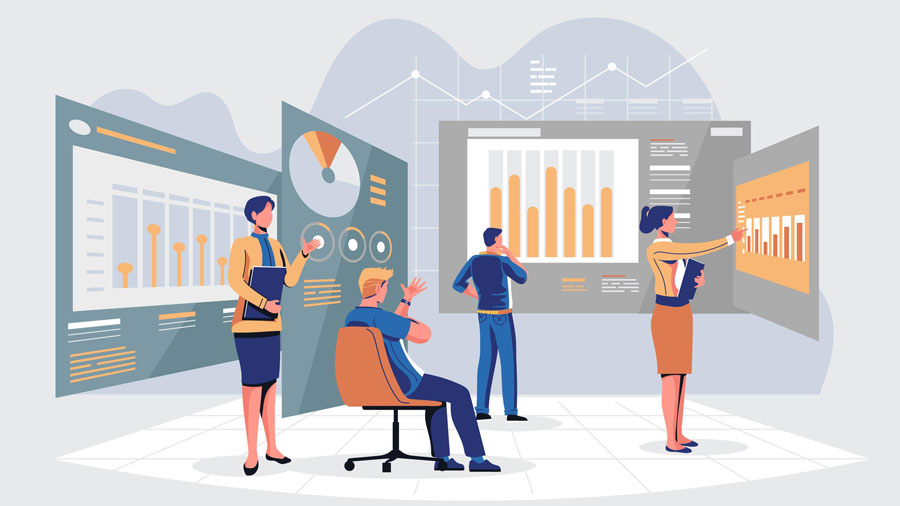The Business-to-Business Ecosphere is a network of companies that partner with companies to provide services and products to other businesses. They facilitate the production, distribution, and transportation of the goods and services that eventually reach the customer. This segment has been present from the time businesses were created as adjacent businesses, but the growth rate of adoption of these services has increased in the current business ecosystem.
One of the biggest motivators for the adoption of B2B services has been the coronavirus pandemic. Adopting simple services like third-party logistics services has helped organizations reduce their need to reorganize their supply chain to meet the demands of society. From simple additions to optimizing routes to ensure supply, third-party providers have provided at a much larger scale, hence, reducing their overall cost. The market research of the various changes in the virus, different possible transport routes, the load-carrying capacity, and the arrangement of goods is essential. The effective cost per unit for the research is much cheaper for 3PL services, unlike corporates.
Another has been the changing nature of the B2B ecosystem, with much more personalized solutions delivered to clients, unlike consumer durables or commodity products which are generally customized by the company and given to the customer. The B2B services have been modified multifold, constantly adapting to the changing nature of the business . This aspect has been done at an incredulous pace to ensure the service provider does not lose out to a competitor. The platforms have been modified to meet the industry’s unique requirements, from payment gateways to procurement platforms. The ability to tap into a much larger audience is another point of focus. The potential market for a business-to-business enterprise is much larger than those of a consumer market. We can see this demand from the shift in business models for various enterprises during the pandemic. Multiple business-to-consumer models have decided to use their expertise to pivot – as any good business would – into a B2B model. This transition has helped them to survive during this crisis. A few examples are cure.Fit, rapido, arvi, stanza living, and forsk coding school.
The pandemic has also forced multiple B2B businesses to develop new capabilities to utilize the digital ecosphere. From event organizers like Digital Jalebi to health care solution providers like Pad Care Labs, the scope of engagement with different businesses has been increased with the development of new capabilities. These additional capabilities will help them stay relevant in the industry and hence, still attract businesses.
The primary difference between the increasing adoption of B2B services rather than B2B is the beneficial aspect of constant engagement. These organizations have also developed capabilities at a much lower cost than companies could at their discretion. A point to add is that these will ensure that the contract will keep renewing post-pandemic as efficiency is much higher.
A point of contention is the lower authority that companies will have on their value chains. Though this point has some merit, the corporate governance models adopted by most organizations ensure that B2B platforms will act in line with the expectations of their partners. The analysis that companies perform before partnering with service providers will quickly reveal malpractices that they follow. Hence, it would also be in the best interest of the adjacent business to work to its partner’s instructions.
The B2B ecosystem has evolved at an unprecedented rate owing to the effect of the pandemic. The changing needs of the workplace, tailor-made services, and a larger target market to penetrate have all contributed to this change. In the post-pandemic world, we would see these services expand rather than reduce because of the additional functionality.
About the Author:

Pratheek Denny, is a student of MBA ’22. He is a Placement Committee Member with work experience in Deloitte Consulting and with a B.Tech from NIT Trichy. He has experience in project and stakeholder management working with various ERP platforms (SAP, Sage) and cloud providers (GCP, Azure). Apart from work, he enjoys swimming, reading mystery novels, and managing a joke page. You can connect with him on LinkedIn
